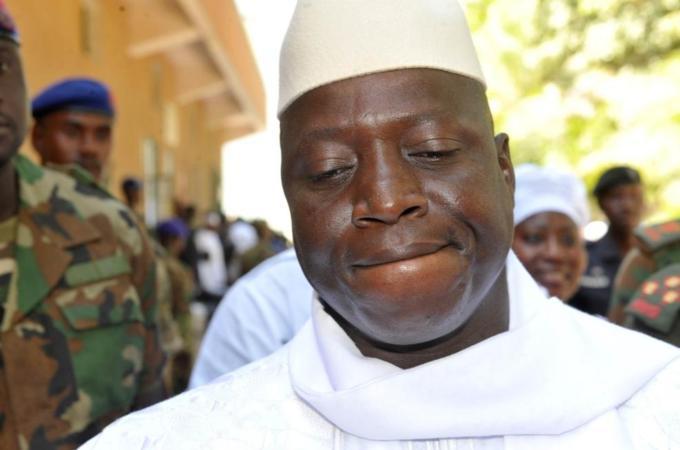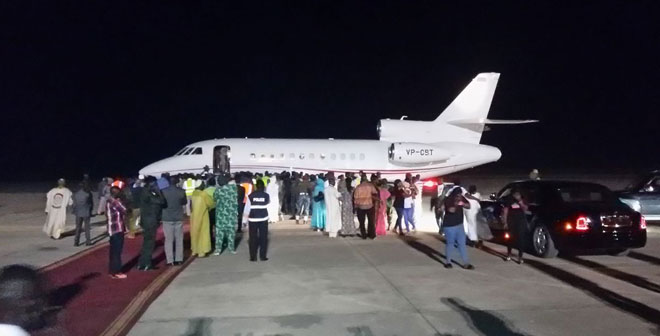
Negotiators won over Gambia ex-leader with appeals to faith and patriotism
Conakry, Guinea | AFP |
In pushing Yahya Jammeh to give up The Gambia’s presidency, negotiators played on two key cards: his deep Muslim faith and his professed love of country.
Jammeh finally quit as president and went into exile on Saturday following intense lobbying by international powers, ending more than a month of crisis that began when he rejected the result of the December 1 election.
Tibou Kamara, a former government minister from Guinea, went early in the crisis to convince Jammeh to leave after 22 years in power in favour of Adama Barrow, who won the ballot.
He was joined last week by Mauritania’s President Mohamed Ould Abdel Aziz and Guinea’s President Alpha Conde, to win over Jammeh before a “last chance saloon” deadline.
“It was not easy, because against the determination of the international community, there was a fierce resolve to defend what he saw as law, truth and justice, but especially the independence and sovereignty of his country,” Kamara said in an interview with AFP.
Kamara had approval to negotiate from Jammeh’s wife, whose younger sister is married to a former president of Guinea. Both women have Guinean fathers.
“We appealed to his faith,” Kamara said, adding that Jammeh himself often said that “everything that happens to a man is God’s will. This carried a lot of weight.”
Jammeh had long cultivated the image of a devout Muslim, often appearing with prayer beads in hand, and starting his speeches with passages from the Koran.

– Muslim and patriot –
During a day of talks led by the Mauritanian and Guinean leaders — interrupted by a break for Friday prayers — negotiators also reminded Jammeh of his potential place in history.
“Everybody told him that it wasn’t necessary to drag his country into war,” Kamara said, especially as Jammeh prides himself on having come to power without spilling any blood.
The former Gambia president had also made a point of keeping his country out of the many conflicts that have ravaged West Africa.
Negotiators urged Jammeh to “secure” this legacy by agreeing to “leave with dignity”, Kamara said.
The arguments worked: Jammeh cited them specifically during his televised speech in the early hours of January 21, when he agreed to stand down.
“As a Muslim and a patriot, I do not want a single drop of blood to be shed,” he said.
“My decision today was not dictated by anything else than the supreme interest of you, the Gambian people, and our dear country.”
For Kamara, the tense but ultimately successful talks were a victory for Gambians and the region as a whole, under the umbrella of the Economic Community of West African States (ECOWAS) regional bloc.
But he also warned against “score-settling” or “witch hunts” against Jammeh’s associates, and diplomats have called on Barrow’s government to guarantee Jammeh’s civil rights, including his eventual return after leaving the country for Equatorial Guinea.
Kamara’s efforts have paid off: on Wednesday, Guinea’s president named him his “personal advisor” with rank of government minister.
 The Independent Uganda: You get the Truth we Pay the Price
The Independent Uganda: You get the Truth we Pay the Price


